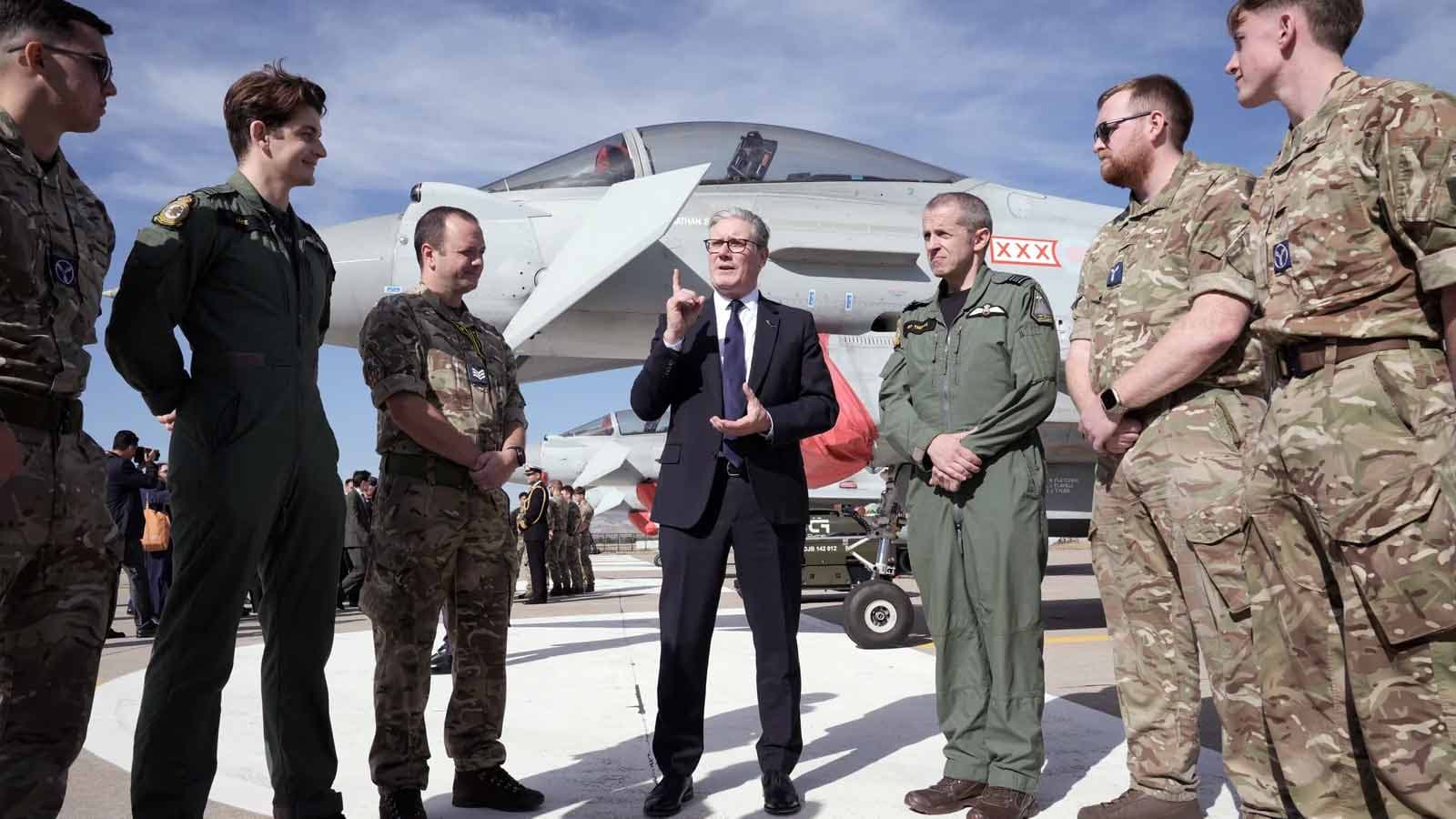We're loading the full news article for you. This includes the article content, images, author information, and related articles.
The landmark defence sale strengthens a key NATO ally with growing strategic interests in the Horn of Africa, raising critical questions for Kenya and the region about the balance between geopolitical strategy and human rights.

The United Kingdom has finalised its largest fighter jet export agreement in nearly two decades, agreeing to sell 20 Eurofighter Typhoon jets to Turkey for approximately £8 billion. The deal was signed in Ankara on Monday, 27 October 2025, by British Prime Minister Keir Starmer and Turkish President Recep Tayyip Erdoğan. While the British government has lauded the deal as a victory for its defence industry and NATO security, it proceeds despite significant and persistent concerns from international observers over Turkey's human rights record.
The agreement marks a significant moment in UK-Turkey relations and bolsters the military capabilities of a pivotal, yet controversial, NATO member. For Kenya and the East Africa region, the deal enhances the air power of a nation that is steadily increasing its diplomatic, economic, and military footprint in the Horn of Africa, a region of direct strategic importance to Nairobi.
Turkey's engagement in the Horn of Africa has expanded significantly over the past decade, combining humanitarian aid, major infrastructure investments, and direct military cooperation. Ankara operates its largest embassy and a military base in Mogadishu, Somalia, positioning itself as a key security and development partner. This growing presence near the crucial Bab el-Mandeb strait, a vital channel for global trade, means any enhancement of Turkey's military projection capabilities is of consequence to regional stability. Kenya and Turkey maintain robust diplomatic and trade relations, with bilateral trade volume reaching over $250 million in recent years and a shared goal of increasing it to $1 billion. Turkey views Kenya as a reliable partner and a gateway to the broader East African market. The addition of advanced, multirole Typhoon jets to the Turkish Air Force strengthens a strategic partner for Kenya but also empowers a government whose foreign policy in volatile nearby regions, such as Libya and Syria, has been assertive and interventionist.
Prime Minister Starmer defended the deal as “a win for British workers, a win for our defence industry, and a win for Nato security.” The agreement is expected to sustain around 20,000 jobs across the UK, particularly at BAE Systems' production facilities in Warton and Samlesbury, Lancashire, which are central to the Typhoon programme. The UK government emphasized that the sale enhances interoperability between allied air forces and strengthens NATO's southern flank, particularly as Turkey is the gatekeeper to the Black Sea.
However, the deal's timing is contentious. It was signed as Turkey faces sustained criticism for what human rights organizations describe as a deep erosion of judicial independence and a crackdown on dissent. According to reports from Amnesty International and Human Rights Watch, the Turkish government under President Erdoğan has engaged in baseless prosecutions of journalists, opposition politicians, and human rights defenders. The deal was finalised even as Ekrem İmamoğlu, a key political opponent of Erdoğan, faced new charges. Critics argue that such a significant defence deal lends legitimacy to an increasingly authoritarian administration and signals that strategic and commercial interests are being prioritized over democratic values.
The Eurofighter Typhoon is a highly agile, twin-engine, multirole combat aircraft developed by a consortium of the UK, Germany, Italy, and Spain. The aircraft is capable of supersonic cruise without afterburners and is equipped with advanced sensors and a wide array of air-to-air and air-to-surface weaponry. The 20 jets will be assembled by BAE Systems in the UK, with the first deliveries to Turkey expected to begin in 2030. The UK is responsible for approximately 37% of each aircraft's production. This sale is the first new export order for the UK-built Typhoon since 2017 and is seen as crucial for preserving sovereign defence manufacturing skills. The agreement represents the culmination of long-running negotiations, with Turkey having expressed interest in acquiring the jets since at least 2023.
Keep the conversation in one place—threads here stay linked to the story and in the forums.
Sign in to start a discussion
Start a conversation about this story and keep it linked here.
Other hot threads
E-sports and Gaming Community in Kenya
Active 9 months ago
The Role of Technology in Modern Agriculture (AgriTech)
Active 9 months ago
Popular Recreational Activities Across Counties
Active 9 months ago
Investing in Youth Sports Development Programs
Active 9 months ago